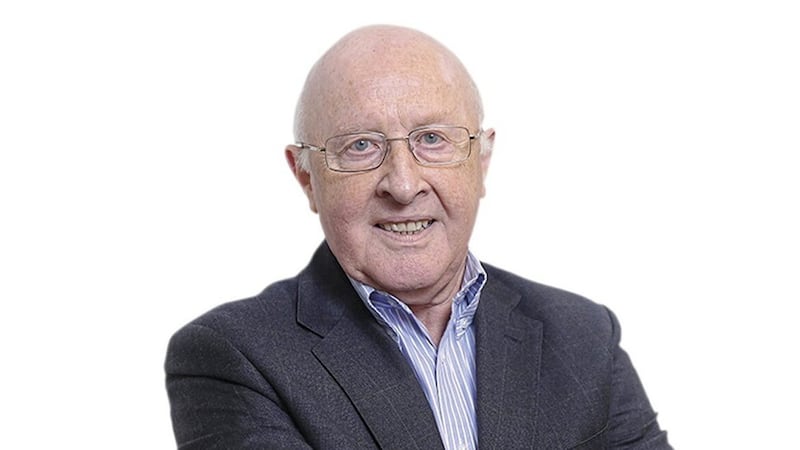SENATOR Michael McDowell, former Tánaiste and leader of the defunct Progressive Democrats, wrote an interesting op-ed piece about Irish reunification in his Irish Times column last week. In it he majored on the consequences for unionists and how these might be mitigated.
First, he makes the pertinent point that the Good Friday Agreement has no provision for a future referendum that could reverse a border poll in favour of Irish reunification.
When the north votes to leave the UK, political unionism becomes a dead duck, or parrot, if you prefer. It ceases to be, has expired, gone to join the political choir invisible.
Therefore, McDowell argues, there is no point in proposing artificial or guaranteed seats in a sovereign Irish government or the Dáil since there is no role for unionism, since unionism would oppose the existence of the new state to no purpose, since there is no mechanism for reversing its existence.
On the other hand, some would argue that this place was invented as a reservation for Protestants so perhaps they should be protected.
However, as McDowell asks, how do you define political Protestants in a modern secular society? Would a Protestant republican qualify? Would anyone want to be defined as such in a political institution, a sort of Irish version of the anachronistic bishops in the British House of Lords? So far, so good.
It's at this point that McDowell’s argument starts to falter.
He proposes a confederal model for Irish reunification without thinking through its consequences, which are elaborated comprehensively in Brendan O’Leary’s recent Making Sense of a United Ireland.
The technical reasons are too detailed to explain at length here, but a confederation is the most complicated model requiring a series of risky referendums to alter Bunreacht na hÉireann and guaranteeing fraught relations between the two parts of the confederation.
However, at bottom what McDowell has missed is that the terms of trade have changed.
As he points out, in a reunified Ireland there would be no point in unionist political activism. The same would be true in a confederation which would in essence be a lie: it would be a death sentence for unionism with a stay of execution for an unknown period.
McDowell fails to ask the fundamental question, namely since the purpose of the north – a politico-ethnic reservation with a guaranteed governing Protestant unionist majority – has ceased to be, what is it for? Why recreate it in another form with unionists a minority instead of nationalists?
There’s another aspect that needs to be considered. In 2020 Professors O’Leary and John Garry conducted a sort of mini-citizens' assembly and presented those attending with various models for reunification and their consequences. The more the consequences were spelt out by experts, the more those of a unionist background opted for a unitary state.
Why? Very simple. Why would they opt to be locked into an artificially created northern polity where they would be a permanent and diminishing minority?
Instead, they preferred to take their chances in a sovereign Dáil where they could make political alliances and manoeuvre with the government. Unionists preferred dealing with the rest of the people on the island rather than being left in a place run by a growing northern nationalist majority, however it’s dressed up with checks and balances.
At Ireland’s Future’s convention in Dublin three weeks ago, Leo Varadkar came out with proposals similar to Michael McDowell’s and in both cases many suspect it’s because they believe it would mean the minimum disruption to the existing state in the south with which both Fine Gael and Fianna Fáil are comfortable.
Nonetheless, the important point to take from all this is that serious thinking has begun in political circles in the south about the mechanisms for reunifying Ireland.
What’s needed now is equally serious thinking from northern unionists about how they respond to the looming inevitable demise of their ‘wee country’.









